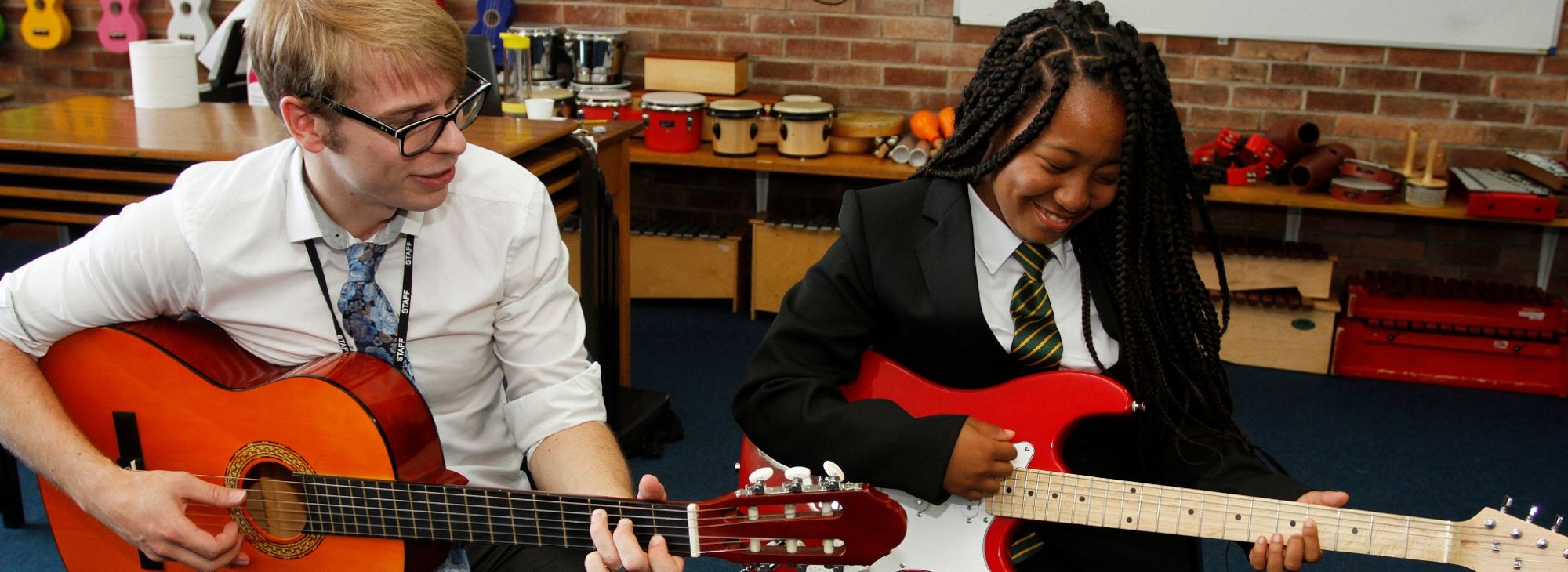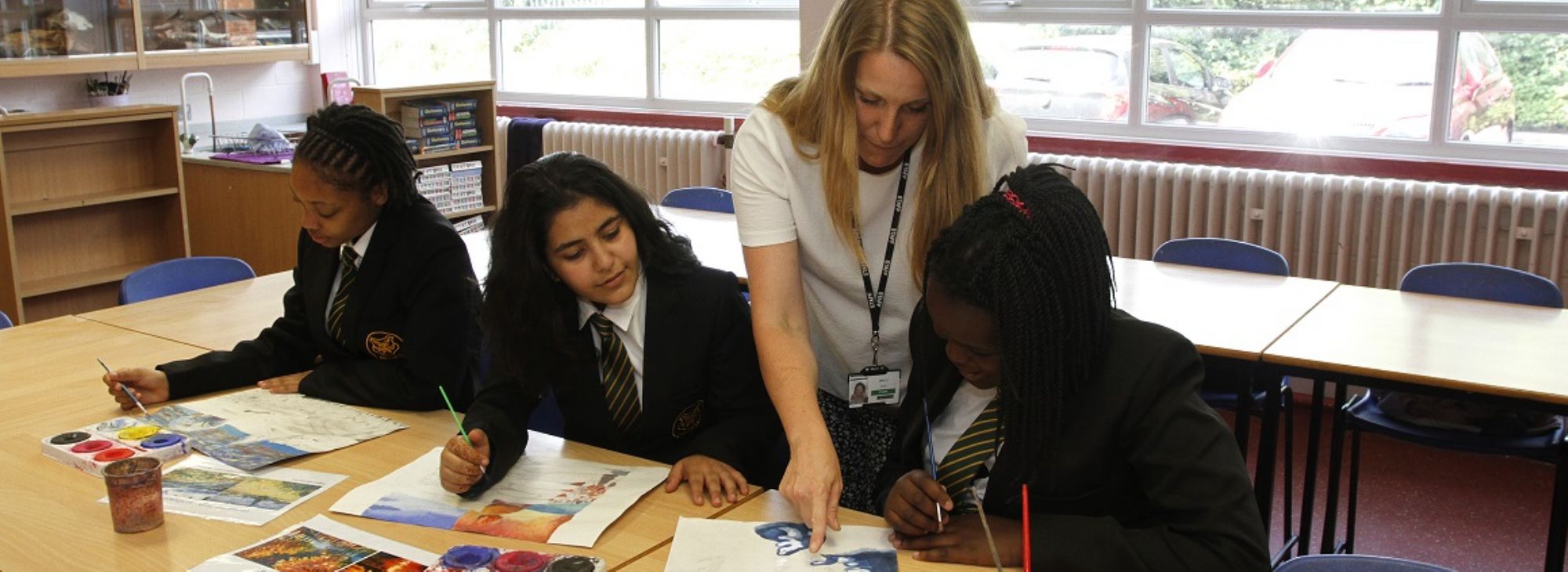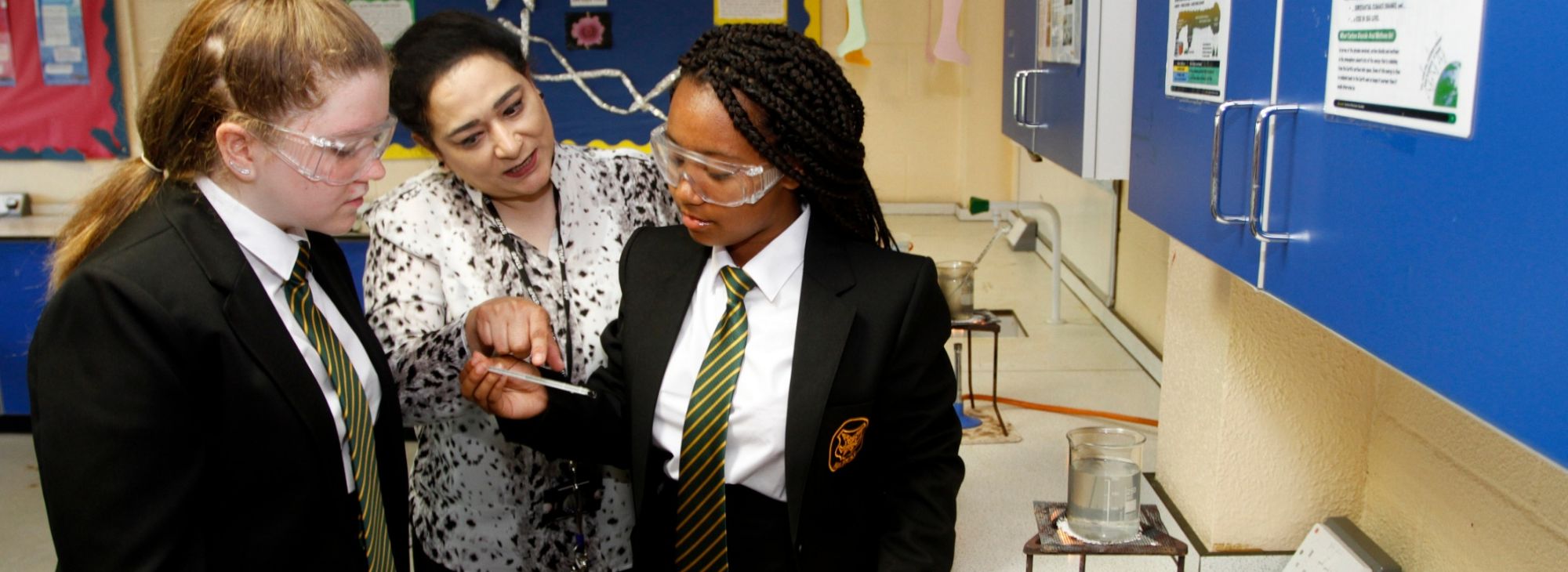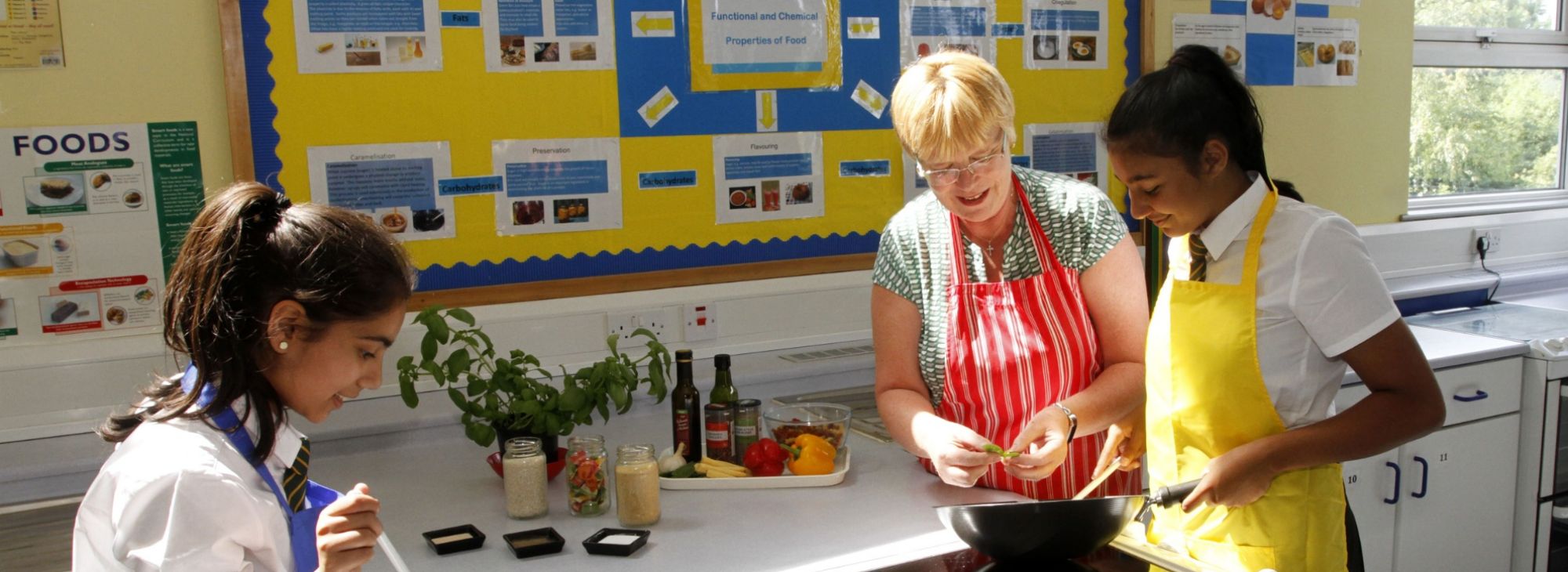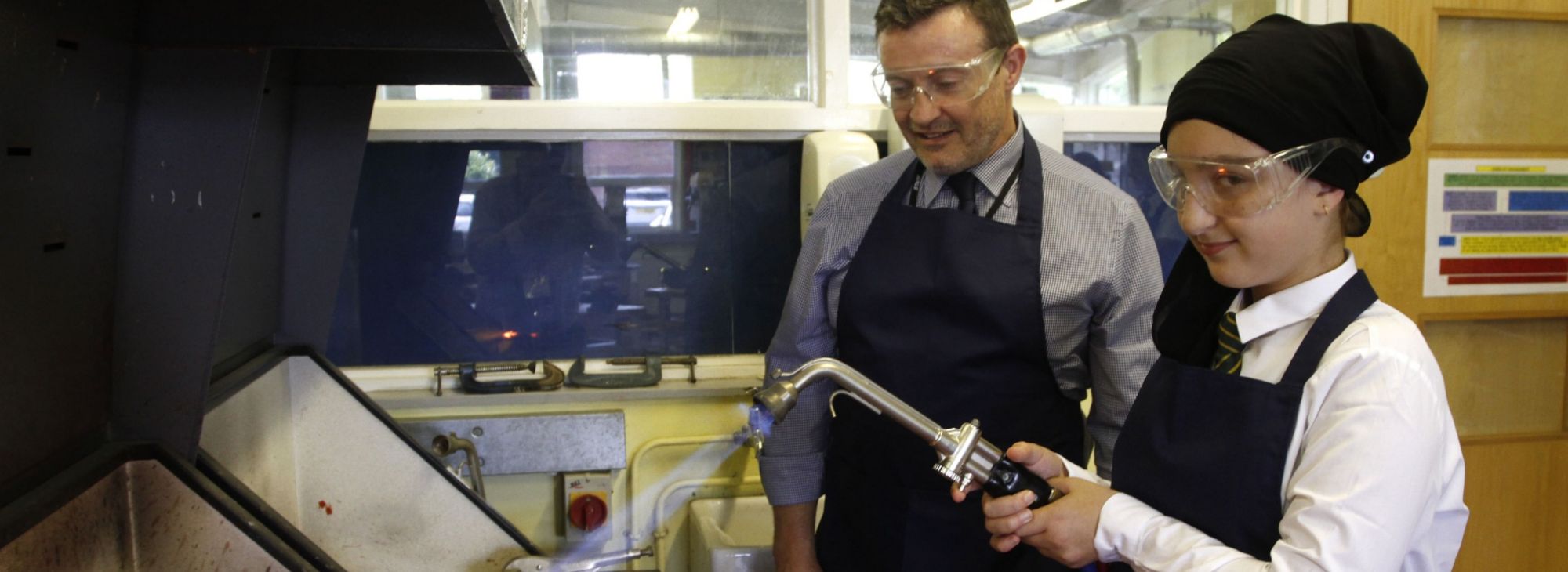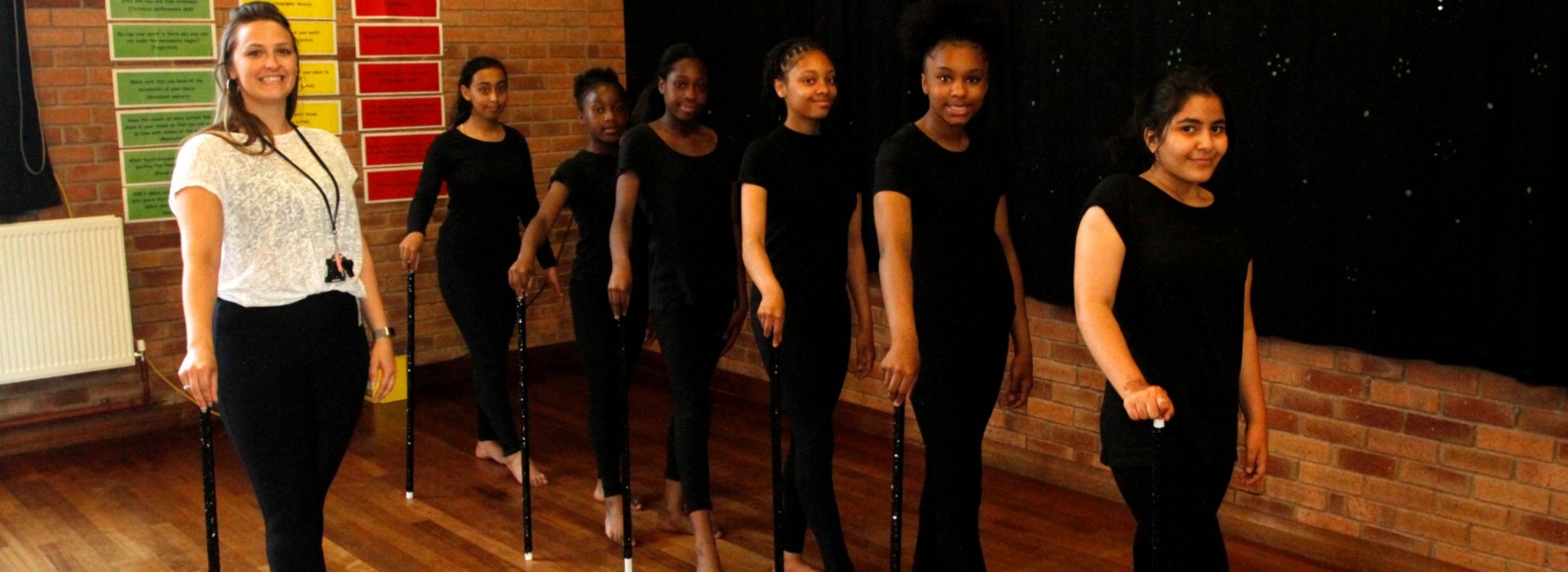PE and Sports
Physical Education offers a high-quality curriculum to inspire all pupils to succeed and excel in competitive sport and other physically demanding activities. It should provide opportunities for pupils to become physically confident in a way which supports their health and fitness. Opportunities to compete in sport and other activities build character and help to embed values such as fairness and respect. Thought the curriculum, we will focus on the concept of
ME in PE
Physical ME – Development of physical skills
Thinking ME – Healthy body and mind
Social ME – Development of interpersonal skills
Mind-set ME – Developing a cultural capital
The PE curriculum will enable students to play a positive role in society by providing them with the knowledge, skills, attributes and qualifications to become educated citizens and flourish in the future.
KEY STAGE 3 CURRICULUM
In Key Stage 3 Physical Education, students build on and embed the physical development and skills learned in Key Stages 1 and 2, become more competent, confident and expert in their techniques, and apply them across different sports and physical activities. They should understand what makes a performance effective and how to apply these principles to their own and others’ work.
Students should develop the confidence and interest to get involved in exercise, sports and activities out of school and in later life, and understand and apply the long-term health benefits of physical activity. In Key Stage 4 Students should tackle complex and demanding physical activities. They get involved in a range of activities that develops personal fitness and promotes an active, healthy lifestyle.
We provide opportunities for students to become physically confident in a way which supports their health and fitness. Opportunities to compete in sport and other activities build character and help to embed values such as fairness and respect. Students follow the national curriculum for Physical Education to ensure that they:
- To develop competence to excel in a broad range of physical activities
- To be physically active for sustained periods of time
- To engage in competitive sports and activities to lead healthy, active lives
- To prepare for future lives and develop a cultural capital
- To learn life skills explicitly through a multi ability approach in Physical Education
- To become active citizens in a global community.
- To develop physical Literacy and life long physical activity involvement through Physical education, physical activity and school sport.
- To enhance personal development of the student
- To encourage children to develop a healthy relationship with exercise and build a habit of daily physical activity that will benefit them throughout their lives.
- To help children and young people have the opportunity to realise developmental, character-building experiences through sport, competition and active pursuits.
- To ensure sport and physical activity provision for children and young people is designed around the principles of physical literacy, focuses on fun and enjoyment and aims to reach all students.
- To reframe sport and physical activity as part of everyday life.
- To raise awareness of the importance of physical activity for children and young people, and make messages such as “at least 60 minutes a day” as recognisable as “5 a day”.
- To encourage participation of extra curricular activities.
Over the key stages students should:
- use a range of tactics and strategies to overcome opponents in direct competition through team and individual games [for example, badminton, basketball, cricket, football, hockey, netball, rounders, rugby and tennis]
- Develop physical literacy
- develop their technique and improve their performance in other competitive sports [for example, athletics and gymnastics]
- perform dances using advanced dance techniques in a range of dance styles and forms
- take part in outdoor and adventurous activities which present intellectual and physical challenges and be encouraged to work in a team, building on trust and developing skills to solve problems, either individually or as a group
- analyse their performances compared to previous ones and demonstrate improvement to achieve their personal best
- take part in competitive sports and activities outside school through community links or sports clubs
- Fair play, respect, importance of sport, health related lifestyles and careers relating to physical education.
Key stage 4
Pupils should tackle complex and demanding physical activities. They should get involved in a range of activities that develops personal fitness and promotes an active, healthy lifestyle.
Pupils should be taught to:
- use and develop a variety of tactics and strategies to overcome opponents in team and individual games [for example, badminton, basketball, cricket, football, hockey, netball, rounders, rugby and tennis]
- develop their technique and improve their performance in other competitive sports [for example, athletics and gymnastics] or other physical activities [for example, dance]
- take part in further outdoor and adventurous activities in a range of environments which present intellectual and physical challenges and which encourage pupils to work in a team, building on trust and developing skills to solve problems, either individually or as a group
- evaluate their performances compared to previous ones and demonstrate improvement across a range of physical activities to achieve their personal best
- continue to take part regularly in competitive sports and activities outside school through community links or sports clubs
A high quality PE is an entitlement for all pupils regardless of their starting points. A high quality PE curriculum inspires all pupils to succeed and excel in competitive sports and physical demanding activities. PE provides opportunities for students to be physically confident, supports health and fitness and build character and life values. In PE, pupils learn increasingly intelligent movement and important knowledge to inform their own healthy, active lifestyles and choices. Knowledge production is based on: physiology, psychology and sociology. Through the selection and sequencing of curriculum content that develops pupils competence, more pupils can believe that PE is for them and inequalities can be reduced. PE can play a massive part of broading access to important knowledge and skills and bridge the gap pp and non PP.
The aim of for all pupils to know and do more, progression is measured through the 3 pillars of progression
- Motor competence
- Rules, strategies and tactics
- Healthy participation
Year 7
The focus of year 7 Physical Education is Creating a love for physical education, physical activity and sport. The focus is developing communication, fairness, friendship and respect.
Throughout the year we focus on physical literacy, this is the importance of physical education, physical activity and sport, why regular activity, one hour per day is important for body and mind, the importance of healthy eating, the components of physical and skill related fitness, lifestyle routines.
|
Year 7 – Creating a love for physical Education, developing communication, fairness and team work |
||||
|
|
Theme |
Activity plan |
Key Unit aims |
|
|
Term 1A |
Performing at maximum levels- Healthy active lifestyles and fitness components
|
|
|
|
|
Term 1B |
- Outwitting your opponent Invasion games and fundamentals in movement
|
|
|
|
|
Term 2A |
Invasion games, team work, communication and control |
|
To develop concentration and focus |
|
|
Term 2B |
|
|
|
|
|
Term 3A |
|
|
|
|
|
Term 3B |
Cooperation and Competition |
|
|
|
Year 8
The focus of year 8 Physical Education is to develop and refine skills in Physical Education, to develop team work, resilience and physical literacy.
Throughout the year we focus on physical literacy. We will develop a link between physical fitness and mental health, identify the difference between a skills and a tactic, develop your own warm ups, explore the musculoskeletal and cardiorespiratory systems and short and long term effects of exercise.
|
Year 8 – Developing and refining key skills, resilience and physical literacy |
||||
|
|
Theme |
Activity plan |
Key unit aims |
|
|
Term 1A |
|
|
|
|
|
Term 1B |
|
|
|
|
|
Term 2A |
|
|
|
|
|
Term 2B |
|
|
|
|
|
Term 3A |
|
|
|
|
|
Term 3B
|
|
|
|
|
Year 9
The focus of year 9 Physical Education is to embed skills and knowledge within Physical Education, develop problem solving skills, respect and communicational skills.
Throughout the year we focus on Physical Literacy including self-led-warm ups, measuring heart rate, fitness outside the curriculum, how to stay healthy, energy systems used in sport, different types of muscles and movement, circulation and analysing and evaluating performance.
|
Year 9 – Embedding skills and knowledge, problem solving and evaluating performance |
||||
|
|
Theme |
Activity plan |
Key units aims |
|
|
Term 1A |
|
|
|
|
|
Term 1B |
|
|
|
|
|
Term 2A |
|
|
|
|
|
Term 2B |
|
|
|
|
|
Term 3A |
|
|
|
|
|
Term 3B |
Sportsmanship and fair play |
|
|
|
Year 10
|
Year 10 – Improving performance and healthy active lifestyles |
||||
|
|
Theme |
Activity plan |
Key units aims |
|
|
Term 1A |
Fit for life |
Fitness tests and training methods |
Physical ME: To evaluate results from fitness tests to identify areas of strength and areas of weakness. To demonstrate leadership administering fitness tests. Thinking ME: To explain the importance of physical activity post key stage 4. To develop idea’s and methods to continue physical activity post key stage 4. Social ME: To develop leadership skills Mind-set ME: To demonstrate commitment to improve and develop leadership skills. |
|
|
Term 1B |
Invasion games - Improving performance, leadership and active healthy lifestyles |
Netball Football Basketball |
Physical ME: To further develop the fundamental principles of play when selecting and applying tactics for defending and attacking. Pupils will further develop the ability to outwit opponents and teams using strategies and tactics. Pupils will learn to combine and perform advanced netball skills and tactics applying fluency as well as a greater accuracy and quality of technique. Continual development and adaptation of the necessary skills will contribute to producing an improved performance. Thinking ME: Pupils will create new defensive and attacking strategies to improve their team performance. Pupils should be able to recognise the importance of responding to changing situations within the game in attack and defense. Pupils will be constantly faced with decisions based on movement of the ball into space and choice of skill execution. Opportunities to referee or coach pupils or small groups will develop communication and decision making skills. Student will evaluate and improve performance and discus the benefits of being healthy and living an active lifestyle. Social ME: To develop team work and problem solving skills through positioning ideas based on individual strength. Mind-set ME: To focus and show positive mind set to problem solve
|
|
|
Term 2A |
Team building and leadership skills |
Team building activities |
Physical ME: To develop problem solving skills through Intellectual and physical challenge activities Thinking ME: To explain the qualities of great leadership and identify why leadership is important in many different life scenarios. Social ME: To develop a respectful leadership style and communicational skills Mind-set ME: Leadership |
|
|
Term 2B |
Outwitting your opponent
Net/wall – improving performance, leadership and healthy active lifestyles
|
|
Physical ME: To further develop the fundamental principles of play when selecting and applying tactics for defending and attacking. Pupils will further develop the ability to outwit opponents and teams using strategies and tactics. Pupils will learn to combine and perform advanced netball skills and tactics applying fluency as well as a greater accuracy and quality of technique. Continual development and adaptation of the necessary skills will contribute to producing an improved performance. Thinking ME: To analyse another peer’s performance and suggest how the weaknesses could be improved. To Social ME: To develop leadership skills of positive body language and positive encouragement. Mind-set ME: To demonstrate a positive mind |
|
|
Term 3A |
Exercising safely and effectively
Improving performance, leadership and healthy active lifestyles |
|
Physical ME: To further develop the fundamentals of individual performance and aims for a ‘personal best’ by applying advanced techniques to a range of athletic events. Thinking ME: To identify muscle groups and explain the meaning of body composition. Social ME: To develop leadership skills of responsibility (health and safety). Mind-set ME: To demonstrate a positive mind set |
|
|
Term 3B |
Striking and fielding
Improving performance, leadership and healthy active lifestyles |
|
Physical ME: To further develop the fundamentals of individual performance in striking and fielding events. Thinking ME: To explain the importance of body composition and a healthy diet. Social ME: To develop inter-personal skills to be an effective leader. Mind-set ME: To demonstrate a positive mind set |
|
Year 11
|
Students follow a rotation of activities over term 1 and 2 and a rotation of activities over term 3
|
||
|
Term 1 and 2 |
Activity 1 – Football and netball
|
Aim:
- |
|
Activity 2 – Netball and badminton
|
||
|
Activity 3 – Circuits and boxercise
|
||
|
Activity 4 – Dance and yoga |
||
|
Term 3 |
Activity 1 – Cricket
|
|
|
Activity 2 - Tennis |
||
|
Activity 3- Rounder’s |
||
|
Activity 4 – Athletics |
||
Key Stage 4 Curriculum P.E. & Sports
Option Subject: BTEC Tech Award Level 1/2 in Sport
Course Contact: Mrs L Taylor-Stupple – Learning Manager
Exam board link: https://qualifications.pearson.com/en/qualifications/btec-tech-awards/sport-2022.html
Course Content
The course consists of three units:
Unit 1) Preparing participants to take part in Sport and Physical Activity.
Unit 2) Taking part and improving other participant’s performance
Unit 3) Developing fitness to improve other participant’s performance in sport and physical activity.
The three units in the qualification give learners the opportunity to develop broad knowledge and understanding in the sport sector and specialist skills such as analysis, leadership, teaching and communication.
Assessment Details
Unit 1 and 2 are internally assessed through written and practical coursework completed in controlled conditions. Both units are 30% of final grade.
Unit 3 is assessed through a 1.30 hour written exam at the end of the course. This is worth 40% of the final grade.
Final grades will be through a level 1 or 2 pass, merit or distinction.
Why Study This Course?
Maintaining and improving areas of fitness, trying new activities and improving knowledge of the sports world. The BTEC framework enables students to develop and apply their literacy and numeracy skills through the course.
The world of sport is a big business with many different careers and opportunities available ranging from coaching, physiotherapy, sports development, police, sports fashion, sports management, sports business to name but a few.
BTEC sport shows employers and further education institutions that students have the ability to learn and apply theoretical applications to a practical setting whilst developing all the key characteristics needed in today’s working environment, such as team work, communication and inter personal skills.
Progressing to any course at key stage 5 and moving into a profession in the sport, leisure or recreation industries. Progression onto Level 3 study (AS/A2 or BTEC National). Students will develop confidence, self-esteem, team spirit, skills and techniques.
Physical Education Reading List
PEPA- Careers in the Curriculum Priorities
Career intent statement for PEPA:
1 – Identify and demonstrate different employability skills
2 – Develop an understanding of career based roles and responsibilities within our subjects
3 – To create a careers display advertising jobs within our subject
4 – To engage pupils with professionals in our industry
|
|
1A |
1B |
2A |
2B |
3A |
3B |
|
Year 7 |
Positive language |
Resilience |
Communication And teamwork |
Supporting others |
Motivation to succeed |
Respect for others |
|
Year 8 |
Evaluating strengths |
Respect for rules and regulations |
Respect for decisions |
Decision making |
Active listening skills |
Self-reflection |
|
Year 9 |
Reasoning skills |
Verbal reasoning skills |
Planning and application skills |
Compromising skills
|
Analytical skills |
Fair play |
|
Year 10 |
Leadership skills |
Problem solving skills |
Positive body language |
Positive mind-set |
Responsibility |
Inter-personal skills |
|
Year 11 |
Leadership |
communication |
Team work |
Role model |
Positive attitude |
|

